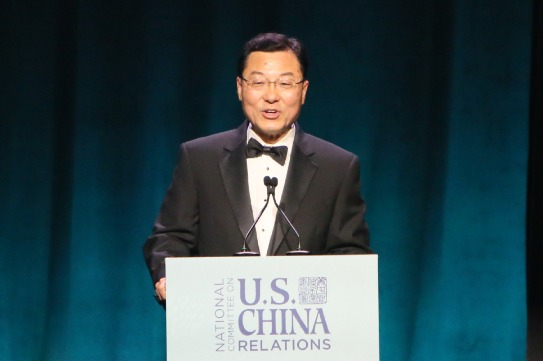New Zealand's AI strategy to drive economic growth

The New Zealand government's newly adopted Strategy for Artificial Intelligence paper is seen by many as the first step toward unlocking the transformative potential of AI.
Minister for Science, Innovation, and Technology Shane Reti welcomed the July 8 report with a statement saying AI will "boost productivity and grow a competitive economy".
AI has the potential to add NZ$76 billion ($45 billion) to the New Zealand economy by 2038, he said.
However, some expressed concern that the strategy does not mention the Treaty of Waitangi — New Zealand's founding document — or challenges faced by the indigenous Maori people, as most modern AI systems are sourced from Western contexts.
Reti cautioned that New Zealand was "falling behind other small, advanced economies on AI readiness, and many businesses are still not planning for the technology".
The country must develop stronger AI capabilities to drive economic growth, he said, emphasizing the private sector's role in leveraging AI to boost productivity.
Aligned with the OECD AI Principles, the strategy demonstrates New Zealand's commitment to responsible AI use and development on the global stage, the minister said.
The government intends to continue collaborating with international partners to establish consistent global standards that promote the ethical deployment of AI while fostering innovation, he added.
New Zealand can look to China for an example of how AI is being utilized to benefit the country and its economy. A report by Morgan Stanley, released on May 22, predicted that China's AI industry and related sectors could grow into a market valued at $1.4 trillion by 2030.
China's AI investments may break even by 2028 and deliver a 52 percent return on investment capital by 2030, according to the report.
China has become one of the world's leading AI nations, with AI at the center of business priorities, consumer behavior and economic growth.
Adrian Clark, an associate professor at the School of Product Design, University of Canterbury, New Zealand, said the strategy is a sensible approach to increasing the adoption of AI in New Zealand's private sector.
It focuses on AI applications within key economic sectors rather than competing with large technology companies in foundational AI, Clark said.
"I agree with this approach in the generative AI space. However, I believe New Zealand can still compete internationally in non-generative AI research," he told Science Media.
Andrew Lensen, a senior lecturer and program director for AI at Victoria University of Wellington, said the strategy was lacking in its consideration of the ethical and societal issues surrounding AI.
The strategy takes a "light-touch and principles-based approach", all but ruling out new legislation for managing the risks of AI, he told Science Media.
karlwilson@chinadailyapac.com





























